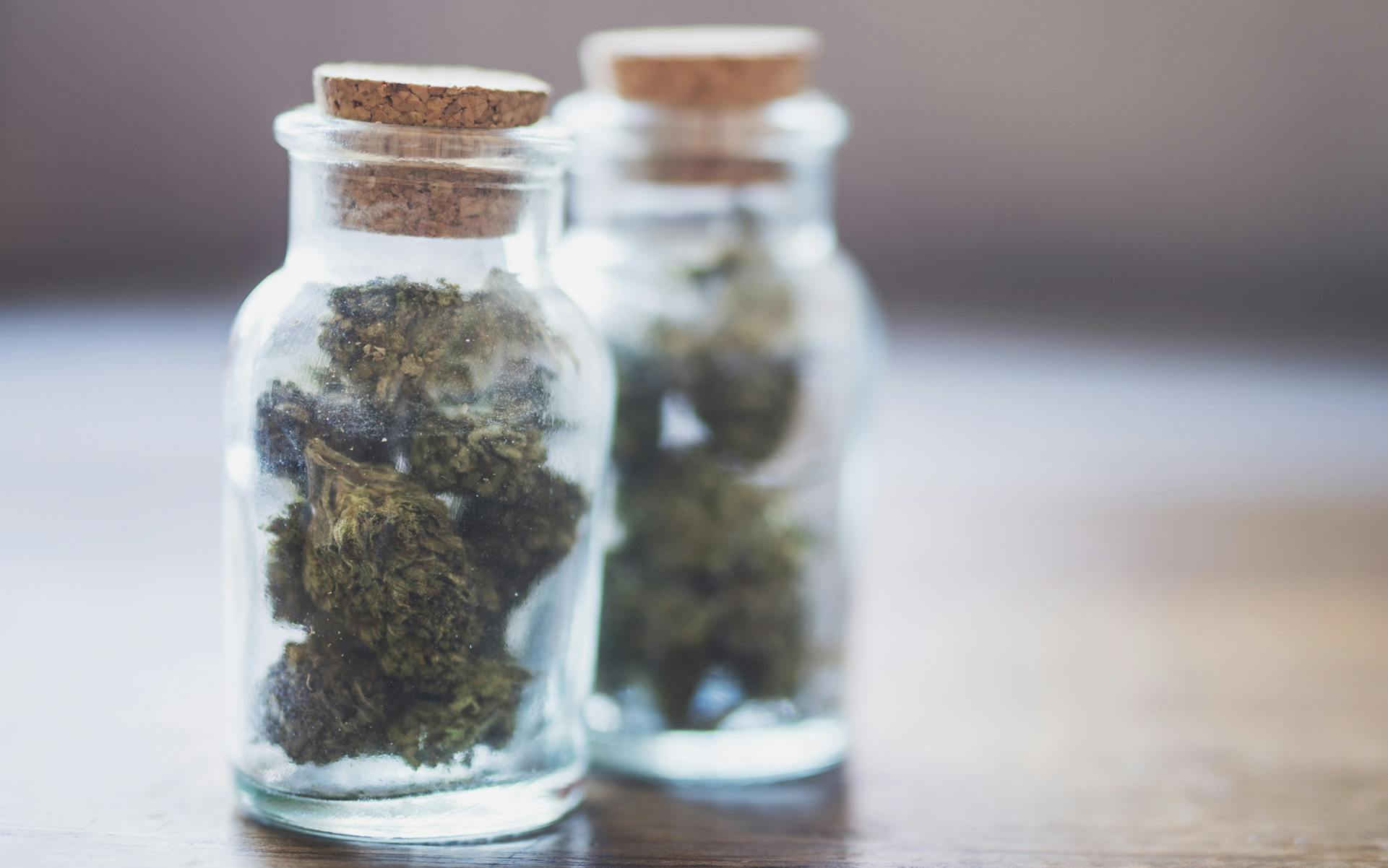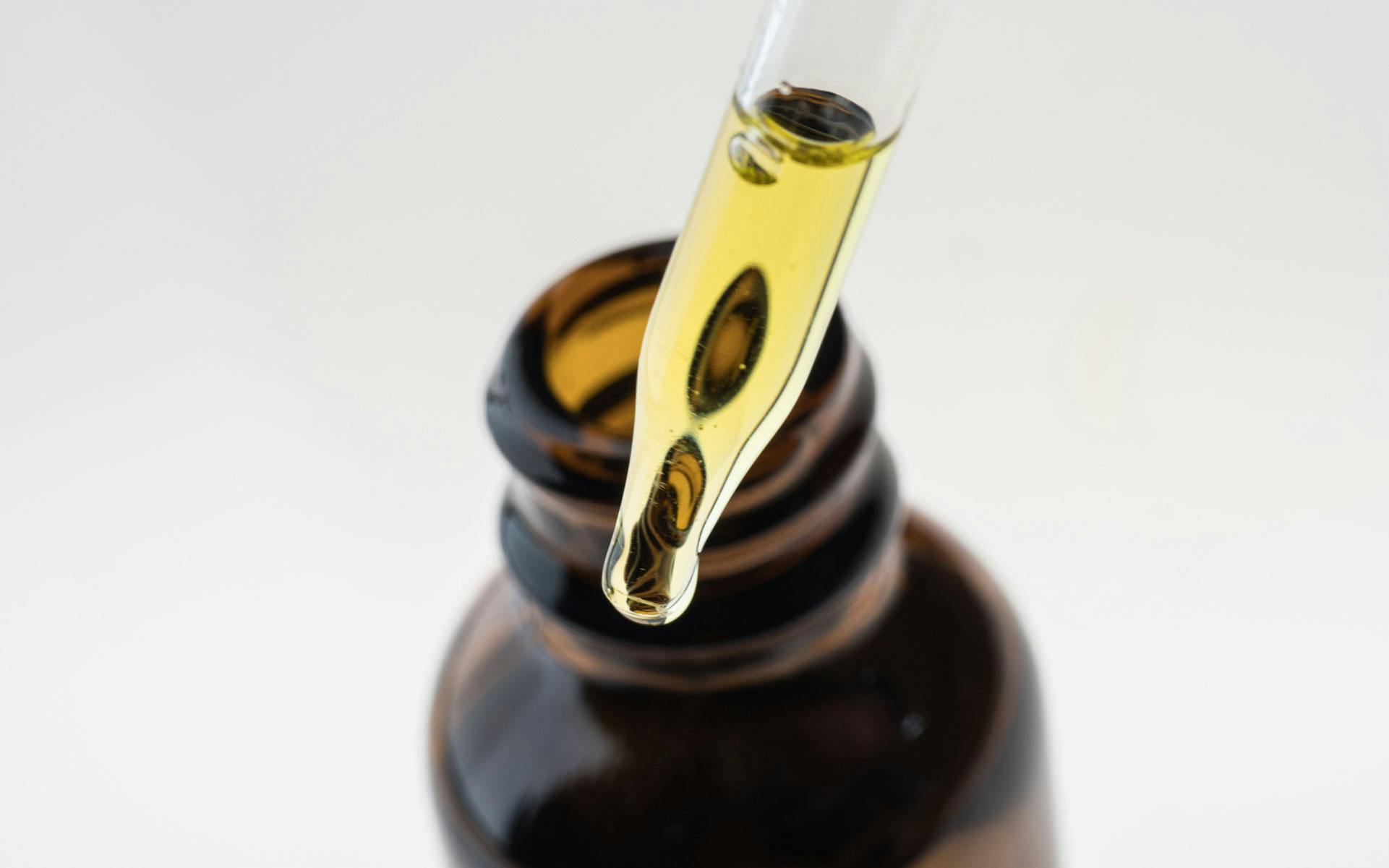
Legal medical marijuana states map and laws
Even though federal law continues to prohibit the use of cannabis, many states have their own medical marijuana programs.
These programs allow qualified patients to access cannabis from state-sanctioned dispensaries, once they’ve been certified by a qualified medical professional.
Due to the unique attributes of each state’s medical marijuana program and the ever-changing nature of marijuana legislation, it’s important to stay up to date with medical marijuana laws and policies in your state.
Learn more about medical marijuana legalization by browsing through the sections below.
What is medical marijuana?
Cannabis derives its medicinal value from cannabinoids, the chemical compounds found naturally in the plant. Medical marijuana is used to treat specific conditions and diseases.
States with medical marijuana programs have passed legislation either through their governments or the voter initiative process to legalize the use of cannabis for medicinal use. These states have unique rules regarding who can grow, sell, and use medical cannabis.
Each state runs its medical marijuana program independently. State legislatures govern everything from the formats of cannabis that qualified patients can consume to the number of cannabis plants patients they can grow at home.
In many states where marijuana is recreationally legal, medical marijuana programs continue to exist, and provide patients with access to higher potency products, greater cultivation allowances, and the ability to purchase more cannabis at one time.
Marijuana legalization map
- adult use
- illegal
- medical
States where medical marijuana is legal
Below you will find a list of states and territories that have legalized marijuana for medicinal use. Click on each name to navigate to more information about its marijuana laws.
| State | Legalization status | Adult use? | Medical marijuana? | Decriminalized statewide? |
|---|---|---|---|---|
| Alabama | Medical | No | Yes | Yes |
| Alaska | Adult use | Yes | Yes | Yes |
| Arizona | Adult use | Yes | Yes | N/A |
| Arkansas | Medical | No | Yes | No |
| California | Adult use | Yes | Yes | Yes |
| Colorado | Adult use | Yes | Yes | Yes |
| Connecticut | Adult use | Yes | Yes | Yes |
| Delaware | Adult use | Yes | Yes | Yes |
| Florida | Medical | No | Yes | No |
| Georgia | Medical | No | Yes | No |
| Guam | Adult use | Yes | Yes | N/A |
| Hawaii | Medical | No | Yes | Yes |
| Illinois | Adult use | Yes | Yes | Yes |
| Iowa | Medical | No | Yes | No |
| Louisiana | Medical | No | Yes | No |
| Maine | Adult use | Yes | Yes | Yes |
| Maryland | Adult use | Yes | Yes | Yes |
| Massachusetts | Adult use | Yes | Yes | Yes |
| Michigan | Adult use | Yes | Yes | N/A |
| Minnesota | Medical | No | Yes | Yes |
| Mississippi | Medical | No | Yes | Yes |
| Missouri | Adult use | Yes | Yes | Yes |
| Montana | Adult use | Yes | Yes | N/A |
| Nevada | Adult use | Yes | Yes | Yes |
| New Hampshire | Medical | No | Yes | Yes |
| New Jersey | Adult use | Yes | Yes | N/A |
| New Mexico | Adult use | Yes | Yes | Yes |
| New York | Adult use | Yes | Yes | Yes |
| North Dakota | Medical | No | Yes | Yes |
| Ohio | Medical | No | Yes | Yes |
| Oklahoma | Medical | No | Yes | No |
| Oregon | Adult use | Yes | Yes | Yes |
| Pennsylvania | Medical | No | Yes | No |
| Puerto Rico | Medical | No | Yes | No |
| Rhode Island | Adult use | Yes | Yes | Yes |
| South Dakota | Medical | No | Yes | No |
| US Virgin Islands | Medical | No | Yes | Yes |
| Utah | Medical | No | Yes | No |
| Vermont | Adult use | Yes | Yes | Yes |
| Virginia | Adult use | Yes | Yes | Yes |
| Washington | Adult use | Yes | Yes | N/A |
| Washington, DC | Adult use | Yes | Yes | Yes |
| West Virginia | Medical | No | Yes | No |
| Maryland | Medical | No | Yes | Yes |
Medical marijuana reciprocity: States that accept out-of-state MMJ cards
Only a dozen states accept out-of-state medical marijuana cards. The states and territories that demonstrate out-of-state medical marijuana card reciprocity are:
- Arizona
- Arkansas
- Hawaii
- Maine
- Michigan
- Nevada
- New Hampshire
- New Mexico
- Oklahoma
- Puerto Rico
- Rhode Island
- Washington, DC
Common qualifying conditions for medical marijuana patients
Qualifying conditions are the diagnosable conditions that patients may seek medical marijuana to help treat. Each state its own list of qualifying conditions. The following conditions are among the most commonly approved for use of medical cannabis.
Shop highly rated dispensaries near you
Showing you dispensaries nearEpilepsy and seizure disorders
Thanks to its significant anti-seizure properties, almost every state has approved medical marijuana to combat epilepsy and other seizure disorders. The non-intoxicating cannabis compound cannabidiol (CBD) has been found to significantly reduce seizure frequency—as much as 42%, according to a 2018 study. Many states may also approve cannabis, specifically CBD, for the treatment of pediatric epilepsy in minors.
Cancer
While scientists continue to explore the ways that cannabis may treat cancer itself, most states now acknowledge its ability to abate symptoms relating to cancer and chemotherapy, including pain, nausea, and appetite loss. For cancer-related symptoms, many patients prefer cannabis products that contain a balance of THC and CBD.
Multiple sclerosis (MS)
Some of the strongest advocates in the cannabis movement are patients with multiple sclerosis who have experienced the benefits of cannabis firsthand. Cannabis has been found to alleviate many symptoms associated with MS: Pain, insomnia, inflammation, muscle spasms, abdominal discomfort, and depression.
HIV/AIDS
Some of the earliest and most effective medical cannabis advocacy in the US is rooted in its ability to treat HIV/AIDS symptoms. It makes sense, then, that so many states have approved the condition for HIV/AIDS patients suffering symptoms like appetite loss, nausea, and fatigue.
Neurodegenerative disease
Medical professionals frequently approve medical marijuana to treat neurodegenerative diseases such as Lou Gehrig’s Disease (ALS), Alzheimer’s, Parkinson’s, Huntington’s, and glaucoma. For many suffering these debilitating diseases, cannabis can help restore their quality of life by improving cognition and mobility, relieving spastic and rigid muscles, and more.
Pain
Doctors have identified several different types of pain, and regularly recommend medical marijuana to treat many of them. Check to make sure your state has approved the specific type of pain you experience, and note that cannabis affects each type of pain uniquely. Many doctors and patients have found that cannabis products that combine THC and CBD tend to be most effective in treating pain.
Nausea
Doctors commonly approve medical cannabis to treat nausea, although there are nuances in its definition from state to state. For example, some states approve cannabis for nausea at a broad level, while others require “severe” or “intractable” symptoms. THC can relieve nausea and vomiting, but be mindful of your dose, especially when using edibles: Too much THC can actually have the opposite effect, and worsen nausea.
Cachexia/wasting syndrome
Cachexia, or “wasting syndrome,” is a condition that typically accompanies cancer and HIV/AIDs, and is characterized by appetite and weight loss along with weakness and fatigue. Given that cannabis—especially THC-rich varieties—can potentially alleviate these symptoms, it’s no surprise that so many states include cachexia in their qualifying conditions.
Post-traumatic stress disorder (PTSD)
PTSD is an anxiety disorder that often expresses itself via panic episodes and hypervigilance, in addition to mood and sleep disturbances. In the appropriate dose—and most often paired with high levels of CBD—cannabis can ease PTSD-related anxiety. Cannabis before bedtime has also been known to help patients fall asleep faster, stay asleep longer, and suppress nightmares.
What are the benefits of having a medical marijuana card in a legal state?
As states across the nation begin to fully legalize adult-use cannabis, you may be wondering how this shift impacts medical cannabis dispensaries and card holders: What does it mean to be a medical cannabis patient in a world where anyone can walk into a recreational dispensary, present their state ID, and legally purchase cannabis?
Is the hassle of visiting a doctor for a medical card still worth it? Are there any real benefits of obtaining or renewing your card?
The answer is yes—medical cannabis card holders continue to reap benefits from their medical programs, even when their home state legalizes recreational cannabis. From dosage to access and affordability, patients will find plenty of support for their ongoing care on the medical side of cannabis legality.
Lower costs and taxes
Many states’ medical dispensaries offer lower prices for medical marijuana patients, a huge asset for individuals who depend on marijuana for their livelihood. Imagine needing life-improving medication, but not having it covered by your insurance—that is the reality of medical cannabis patients all over the country.
Now imagine your medicine was also highly taxed and thus very expensive—that would be the reality of patients if they only had access to recreational dispensaries.
Medical cannabis dispensaries allow concessions for patients that recreational shops do not. In Colorado, for example, medical cannabis patients avoid the 10% retail marijuana tax and 15% excise tax that recreational dispensary costumers must pay.
Higher potency limits
Dosage is extremely important when it comes to medical cannabis, and many patients need access to high-strength products to alleviate symptoms. However, while recreational shops may have to abide by potency limits, medical dispensaries sometimes have more leeway.
For example, in California, recreational tinctures and lotions cannot contain more 1,000mg of cannabinoids per package. Medical product can typically contain up to 2,000mg.
These potency limits vary from state to state. Colorado, California, Oregon, and Nevada all allow higher potency for MMJ patients in varying degrees of potency.
Washington state law restricts recreational edibles to 10mg per serving. However, some dispensaries offer 25mg edibles for medical patients.
Alaska, meanwhile, does not have medical dispensaries, despite having a medical program. Patients access cannabis from recreational dispensaries, and currently there are no options for higher potency products for patients.
Cannabis patients under age 21
Recreational shops can sell cannabis to anyone who is over the age of 21. While this makes sense for the general public, minors who depend on medical marijuana would be barred without medical programs in place. Some medical cards allow those who are age 20 and under to legally access the cannabis medicine they need to treat cancer, epilepsy, or other ailments. Drawing a distinction between medical and recreational cannabis also reduces the stigmatization of pediatric patients.
States with medical cannabis programs typically have laws allowing minors to access medical cannabis with the assistance of a caregiver. Factors including the formats of cannabis (oils, edibles, etc.), the cannabinoids permitted (THC, CBD, etc.), and potency limits vary state to state.
Growing the medical marijuana you need
While not every medical state allows patients to grow their own medicine, many do. Medical patients can often grow more than recreational consumers. In fact, the majority of states with both recreational and medical cannabis laws allow at least some wiggle room for patients to grow additional cannabis as needed.
For example, in Oregon, recreational growers are permitted up to four plants, while medical growers may grow six plants. This is important for medical marijuana patients who, unlike recreational consumers, depend on the plant for their wellbeing and can better offset dispensary costs with their own homegrown supply.
How to buy cannabis in legal medical states
Although medical cannabis laws vary from state to state, the required steps to become an authorized medical marijuana patient generally remain the same.
For patients who wish to use cannabis to help manage their medical symptoms and conditions, what do they need to do before visiting a medical dispensary, and what should they know once they’re at a dispensary so they feel confident about choosing the right products?
Step 1: Check your medical cannabis qualifying conditions
Note: In many states, you must be a resident to receive a medical cannabis card that is valid within that state. Some dispensaries will accept valid, out-of-state cards—check the section above to find out which states have reciprocity laws.
As with any prescribed medication, you’ll need a reason for a doctor to recommend medical cannabis. Each state has a specific set of ailments that can be legally treated with cannabis. These are called “qualifying conditions,” and you can find out which ones your state has approved by navigating to its legalization page linked in the above table.
Common approved medical conditions include cancer, pain, glaucoma, HIV/AIDS, PTSD, fibromyalgia, Crohn’s disease, and multiple sclerosis—however, in most states, the list of qualifying conditions is considerably lengthier.
Step 2: Get your medical cannabis card
Once you’ve determined that you qualify for a cannabis authorization in your state, it’s time to locate a doctor permitted to prescribe cannabis. Ask your doctor if he or she is comfortable recommending medical marijuana, or if you can receive a referral to a medical professional who issues authorizations. (You can also check Leafly’s doctor locator to see if there’s a provider nearby.)
Step 3: Find a cannabis dispensary near you
Note: Remember to bring your medical cannabis card with you on every dispensary visit. Most shops will need to check it upon entry, even if they already have your authorization on file.
With your medical card in hand, you’re now ready to explore dispensaries near you. Use Leafly’s dispensary locator tool for a bird’s eye view of stores nearby—just be sure to filter for medical dispensaries if you live in a state with separate recreational and medical licensed stores.
Every patient has unique needs and deserves an experience that caters to them specifically. Shop around a bit until you’ve found a store with a staff, atmosphere, and product selection that really appeals to you. Peruse Leafly’s dispensary reviews for some crowd-sourced opinions, and consider adding your own after you’ve finished shopping.
You can also take our word for it and subscribe to Leafly’s newsletter, where we drop recommendations for shops, strains, and other products.
Step 4: Learn the cannabis basics
Once you’ve surveyed the neighborhood for local dispensaries, educate yourself on some of the different strains and products they have available. When treating a medical condition, it’s particularly important to learn about strains, delivery methods, and dosing.
Luckily, Leafly has an answer to almost every cannabis question you might have. Here are a few of the most common, along with a resource chock-full of answers.
- Learn about cannabis consumption methods
- Product tips and recommendations for cannabis newcomers
- Strain recommendations for new consumers
- What does “indica,” “sativa,” and “hybrid” mean?
- How will THC and CBD affect me?
- Edibles dosing guidelines
Budtenders can take your questions and provide advice, but when shops are bustling, you may feel pressured to get through your questions quickly. Get to know the very basics and you’ll have a better chance of a positive experience and effective symptom relief.
You can also run a quick Leafly search of your condition to learn more about what strains and cannabinoids are best suited for your symptoms.
Legalization guide
For a closer look at the types of legalization, check out our dedicated guides for each.
Learn more about medical marijuana in the US
Here are some additional resources, news, and references for medical marijuana in the United States.
Keep up with the latest news about legalization
Stay current on the United States’ legalization efforts by bookmarking Leafly politics and signing up for our newsletter.
By providing us with your email address, you agree to Leafly's Terms of Service and Privacy Policy.





